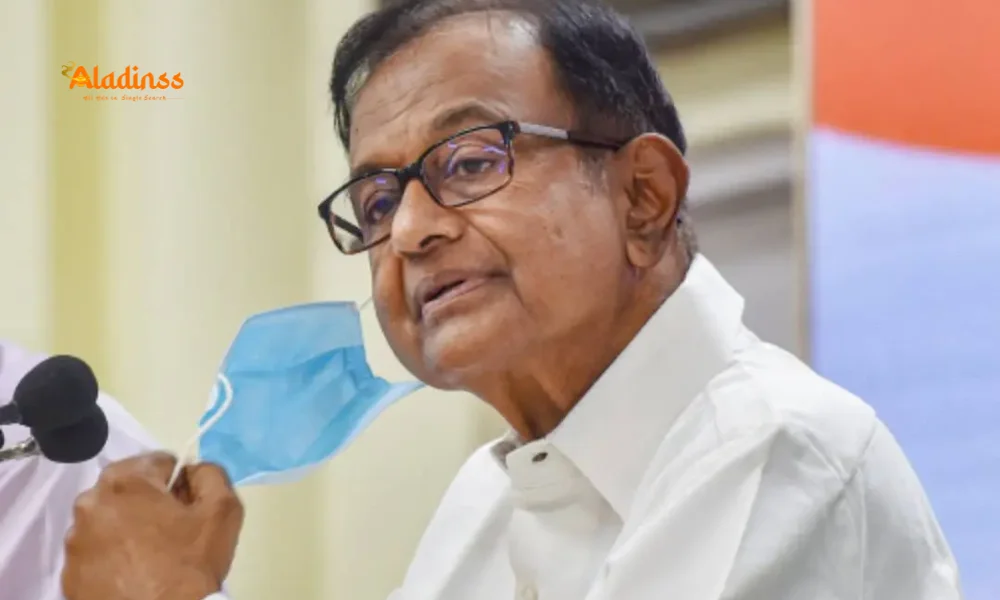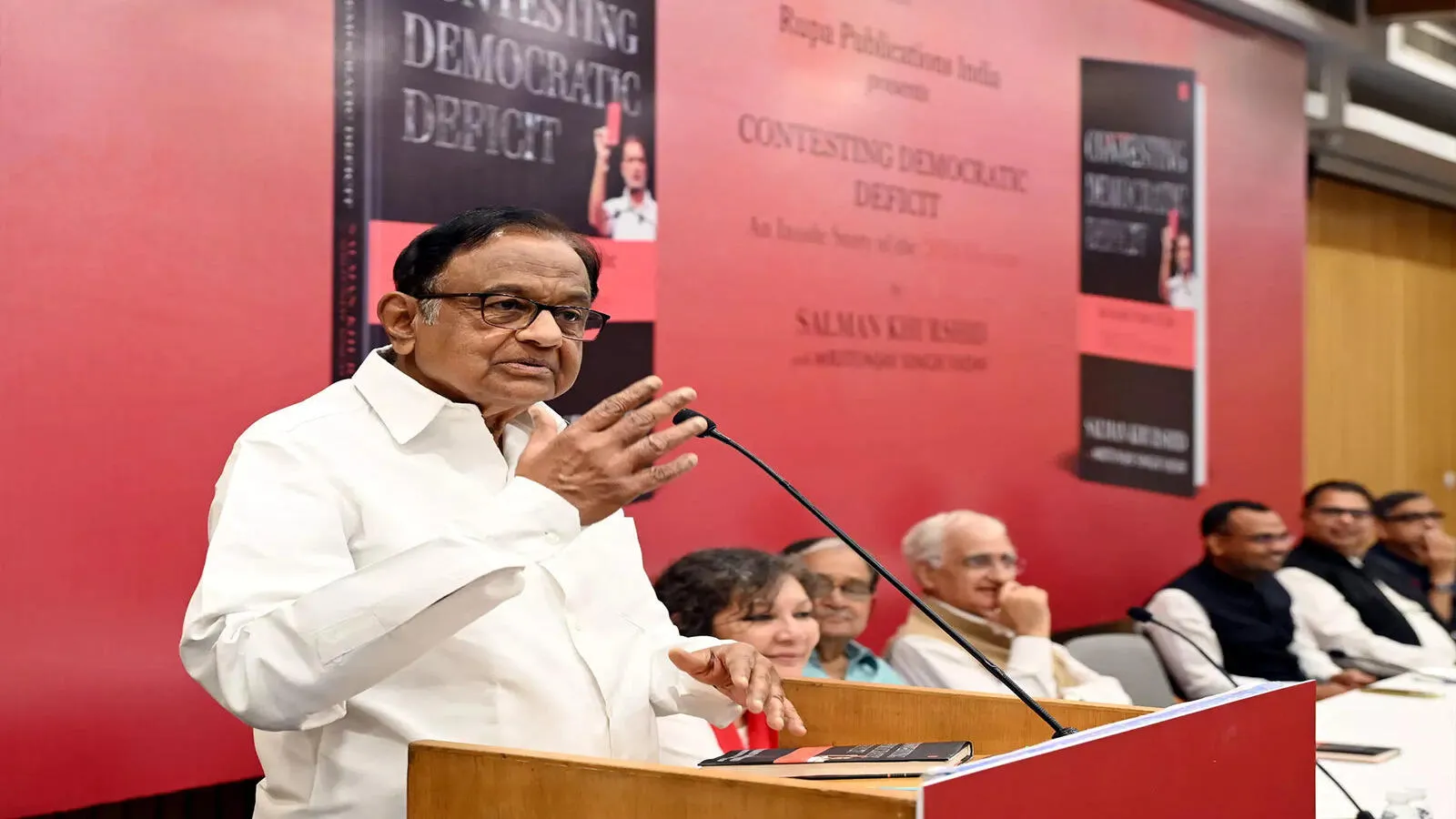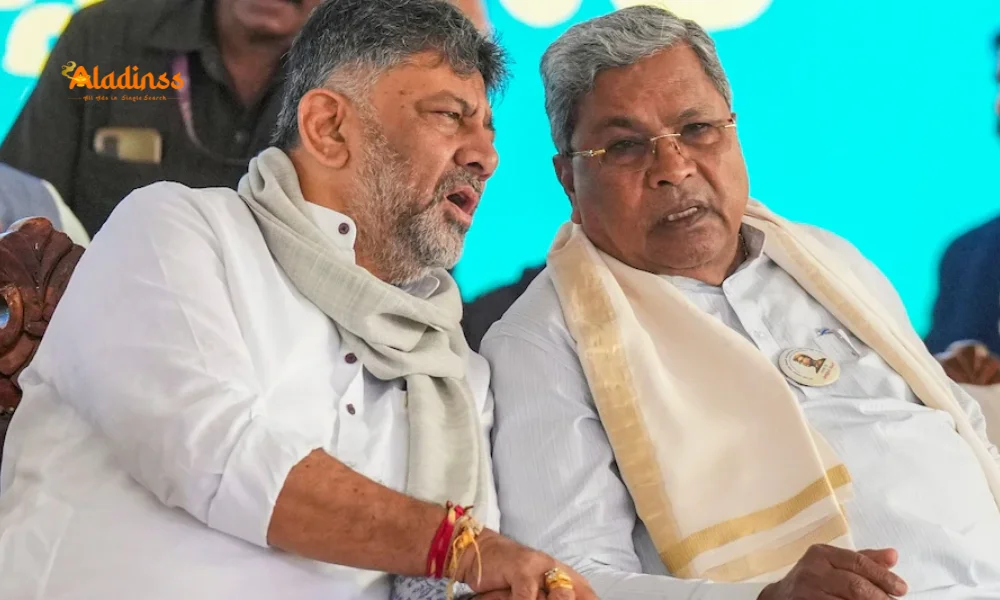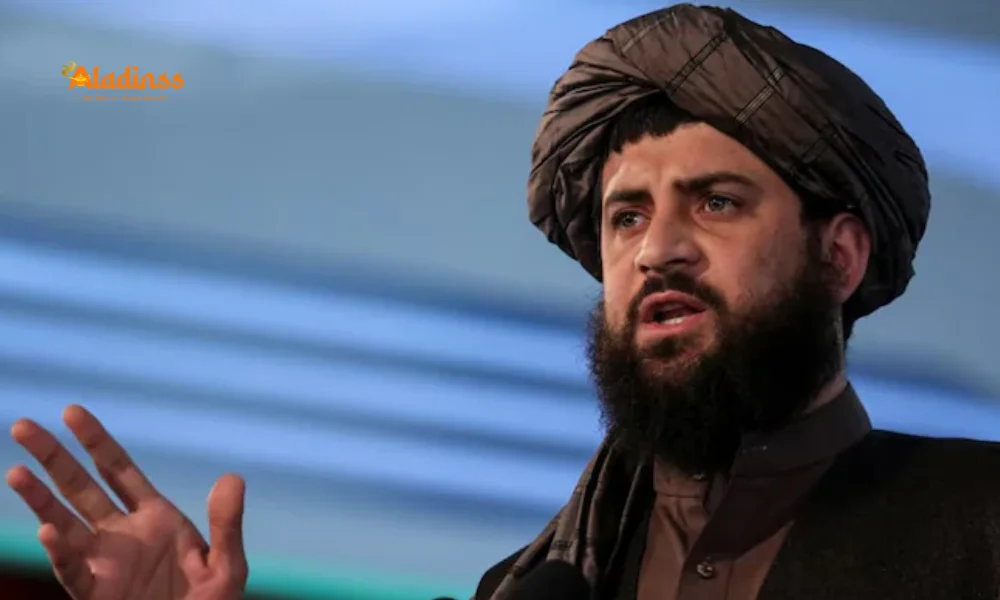Political Storm: Chidambaram Attacks Lokpal’s High-Cost BMW Acquisition

Chidambaram Slams Lokpal’s ₹5 Crore BMW Purchase Plan
Senior Congress leader P. Chidambaram has sharply criticized the Lokpal’s decision to initiate a tender for purchasing seven BMW 330 Li luxury cars, questioning the use of public funds for such an extravagant acquisition. The move, reported on October 22, 2025, has sparked controversy, with Chidambaram highlighting that even Supreme Court judges use modest sedans. The tender, issued on October 16, aims to equip the anti-corruption body with high-end vehicles costing over ₹60 lakh each, raising concerns about fiscal responsibility and public perception.
The Lokpal, India’s independent anti-corruption authority, is reportedly enhancing its administrative framework with this procurement. However, the decision has drawn scrutiny, with critics arguing that it undermines the institution’s commitment to public interest and transparency.

Chidambaram’s Critique of Lokpal’s BMW Purchase
In a pointed statement on X, P. Chidambaram questioned the necessity of luxury vehicles for the Lokpal, an institution tasked with upholding integrity. “When Honourable judges of the Supreme Court are provided modest sedans, why do the Chairman and six members of the Lokpal require BMW cars?” he wrote, urging at least some Lokpal members to reject the vehicles. Chidambaram’s remarks highlight a broader concern about the misuse of public funds, especially for an agency meant to combat corruption.
The Congress leader’s criticism resonates with public sentiment, as many view the purchase as extravagant at a time when fiscal prudence is expected from public institutions. Chidambaram expressed hope that one or two Lokpal members would refuse to use the BMWs, signaling a call for accountability within the organization.
Details of the Lokpal’s Tender Process
The Office of the Lokpal issued a public tender on October 16, 2025, inviting bids for seven BMW 330 Li (Long Wheel Base) luxury sedans, each estimated to cost over ₹60 lakh. The total expenditure is expected to exceed ₹5 crore, making it a significant investment for the anti-corruption body. The bid evaluation process is scheduled to begin on November 7, with suppliers competing to provide the high-end vehicles.
As part of the procurement, BMW is reportedly set to conduct a week-long training program for the Lokpal’s drivers and staff. The training will cover the vehicles’ advanced systems, safety features, and operational guidelines, ensuring efficient use of the sedans. The Lokpal has justified the purchase as part of its efforts to enhance its transport and administrative capabilities, but critics argue that such spending is unjustifiable for a public institution.
The Lokpal’s Role and Responsibilities
Established under the Lokpal and Lokayuktas Act, 2013, the Lokpal is India’s apex anti-corruption authority, tasked with investigating allegations of corruption at the national level. Led by Chairperson Justice Ajay Manikrao Khanwilkar, a former Supreme Court judge, the Lokpal has the authority to probe complaints against the Prime Minister, Union Ministers, Members of Parliament, and central government officials across various groups.
The institution’s jurisdiction extends to chairpersons, members, and officers of boards, corporations, or trusts established by Parliament or funded by the Central Government. It also covers societies or trusts receiving foreign contributions above ₹10 lakh. While the Lokpal operates at the national level, state-level Lokayuktas handle similar anti-corruption matters, ensuring a comprehensive framework to address graft across India.
Public and Political Reactions
The Lokpal BMW controversy has sparked widespread debate, with many questioning the priorities of an institution meant to uphold public trust. Chidambaram’s remarks have amplified public discontent, with social media platforms buzzing with criticism of the tender. Citizens and activists argue that spending over ₹5 crore on luxury cars contradicts the Lokpal’s mandate to represent the public interest and combat corruption.
Opposition parties, particularly the Congress, have seized the opportunity to criticize the government, accusing it of failing to ensure accountability in public spending. The controversy has also reignited discussions about the Lokpal’s effectiveness, with critics pointing out that the institution has struggled to make a significant impact since its inception, despite the high expectations set by the Jan Lokpal movement led by Anna Hazare in 2010.
Context of the Jan Lokpal Movement
The Lokpal was established following the Jan Lokpal movement, a nationwide campaign led by social activist Anna Hazare that demanded a robust anti-corruption framework. The movement, which gained momentum in 2010, pressured the government to enact the Lokpal and Lokayuktas Act, 2013, creating an independent body to address corruption at the highest levels. The public’s expectations for the Lokpal were immense, with citizens hoping it would root out systemic graft and restore trust in governance.
However, the Lokpal’s decision to procure luxury vehicles has led to accusations that it is straying from its core mission. Critics argue that such spending undermines the principles of the Jan Lokpal movement, which emphasized simplicity, transparency, and accountability. The controversy risks eroding public confidence in the institution, particularly at a time when corruption remains a pressing issue in India.
Fiscal Responsibility and Public Perception
The decision to purchase BMW 330 Li sedans has raised questions about fiscal responsibility, especially given the high cost of the vehicles. Each car, priced at over ₹60 lakh, represents a significant expense, and the total cost of ₹5 crore could have been allocated to other pressing needs, such as strengthening anti-corruption investigations or improving public services. Chidambaram’s comparison to Supreme Court judges’ modest sedans underscores the disparity in resource allocation within India’s public institutions.
Public perception of the Lokpal is critical to its effectiveness, as it relies on trust to function as a credible anti-corruption body. The BMW purchase risks portraying the institution as out of touch with the public, particularly when many Indians struggle with economic challenges. The controversy could also prompt greater scrutiny of the Lokpal’s budget and spending practices, potentially leading to calls for stricter oversight.
Implications for the Lokpal’s Credibility
The Lokpal’s mandate is to investigate high-profile corruption cases, including those involving senior government officials. Its credibility depends on maintaining an image of integrity and impartiality. The decision to procure luxury vehicles, however, risks undermining this image, as it suggests a prioritization of comfort over accountability. Critics argue that the Lokpal should focus on delivering results in corruption cases rather than investing in lavish infrastructure.
The controversy also highlights the challenges faced by anti-corruption bodies in India, where public expectations are high but resources and political will are often limited. The Lokpal has faced criticism in the past for its slow progress in resolving cases, and the current controversy could further erode its standing, making it harder to fulfill its mandate effectively.
The Path Forward: Restoring Trust
To address the backlash, the Lokpal may need to reconsider its procurement decision or provide a transparent justification for the purchase. Canceling the tender or opting for more modest vehicles could help mitigate public anger and align with the institution’s anti-corruption ethos. Additionally, the Lokpal could enhance its public outreach, highlighting its efforts to combat corruption and demonstrating accountability in its operations.
Chidambaram’s call for Lokpal members to refuse the luxury cars could inspire internal reforms, encouraging the institution to prioritize fiscal responsibility. The controversy also presents an opportunity for the government to review the funding and priorities of anti-corruption bodies, ensuring they align with public expectations and the principles of the Jan Lokpal movement.
Broader Implications for Governance
The Lokpal BMW controversy has sparked a broader debate about governance and public spending in India. At a time when the country faces economic challenges, including inflation and unemployment, extravagant purchases by public institutions are likely to draw scrutiny. The controversy could prompt calls for stricter guidelines on government spending, particularly for institutions tasked with upholding public trust.
The Lokpal’s role in combating corruption is critical to strengthening India’s democratic institutions. However, its effectiveness depends on maintaining public confidence and avoiding controversies that distract from its core mission. By addressing the current backlash and demonstrating a commitment to transparency, the Lokpal can reinforce its position as a vital anti-corruption authority.
Comment / Reply From
No comments yet. Be the first to comment!











